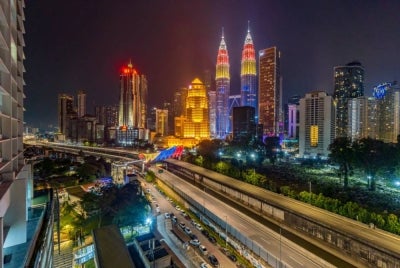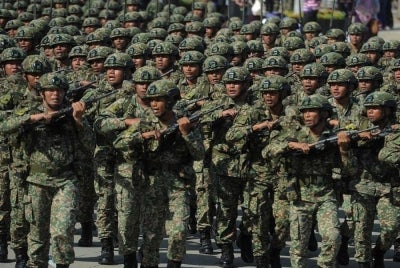Why Poland joined NATO
Krzysztof Debnicki
SHAH ALAM - There are two notions, both widespread, about Central and East European countries’ membership of NATO. The first that “NATO has been expanding East, for instance into Poland”, the second that NATO is in fact, obsolete since the Warsaw Pact was dissolved after the collapse of the Soviet Union.
It seems logical – if West’s main threat is gone, what is the point of keeping NATO? In reality, both the notions are false. Here is why.
Let us start with the apparent parallelism between NATO and Warsaw Pact. Both organisations emerged at the end of the Second World War in the specific historical circumstances at that time. In 1945, the whole of the Central and Eastern Europe had been conquered by the Soviet Army and was politically subjugated by the USSR despite the provisions of the Yalta accord, which provided for democratic multi-party elections in the countries under Soviet control. For western allies, it must have been just a face saving act, having known perfectly well, what the true nature of the Russian communist state was.
Poland’s post-war elections were blatantly rigged. Members of the wartime anti-German resistance movement were imprisoned, killed or exiled to Siberian labour camps. Polish communists, with hardly any grass-root backing, emerged as the so-called “government of independent Poland.” It was not much different in other states of Central and Eastern Europe with popular leaders exiled, imprisoned or murdered, as was Jan Masaryk the Czechoslovak Foreign Minister in 1948. The Russian rule by proxy was solidified for the next half century. It became crystal clear that Soviets will not keep other parts of the Yalta deal and sooner or later will try to use their mighty military machine, now stationed as far west as the Elbe river, for the conquest of the rest of Europe. Out of these fears, NATO was born as a purely defensive organisation with the sole aim of safeguarding the freedom, democracy and the well-being of the West.
The post-war political system as artificially implanted by Russians in Poland was essentially not much different from how the British ruled India and other Asian colonies until their final liberation. It was known as indirect rule - Indian princely states, something like 560 of them, making up two-fifth of India, formally independent and sovereign, were completely dependent on the will of the paramount power - the British Indian government in Delhi.
In the case of Poland, the seat of the paramount power was in Moscow and key decisions were taken there, not in Warsaw, Poland’s capital. So was the decision on the creation of the Warsaw Pact, in response, as claimed by Russia, to the “aggressive NATO alliance.”
Warsaw Pact legally formalised Soviet military dominance over its satellites and had some propaganda value abroad. Back home, no one had any doubts - pact or no pact, Soviets do what they want. While NATO was, and remains, a voluntary association of democratic countries for common security, Warsaw Pact, until its demise in 1991, was an instrument of Russian military dominance over its conquered satellites.
After the USSR’s collapse and dissolution in 1991 – as a matter of fact, President of Russia, Vladimir Putin calls it “the greatest tragedy of the 20 th century”, very telling, as if there were no two World Wars, in which well over 100 million people perished – the former satellites, including Poland, now freed from Moscow’s yoke, began frantically looking for their own security. The reason was quite clear: Soviet Union’s expansionism was essentially nothing more than the old Russia’s imperialismrepainted red and promoted internationally as the liberation movement of the world’s downtrodden.
What would be the post-Soviet new Russia? Much as we all hoped for the emergence of democratic, pluralistic Russia willing to join the community of civilised nations we had to tread carefully. The sole recourse Central European non-nuclear states had was merging as deeply and as fast as possible within the Western world. In Poland’s case, it was only natural as all our links, historical, cultural, religious were to the West, not Russia.
The deep desire to become a part of NATO was Poland’s own. There was no “NATO expanding East” as some claim, against the will of the people of Poland. No one “dragged us” into the Alliance and the accession process itself was not easy and lasted entire five years.
In fact, at the very beginning of the negotiations, there was on the part of some western Russia/Soviet experts quite a bit of ambivalence, if not opposition, as to the advisability of accepting former Soviet satellites as new members of the Alliance.
What would the Russian’s say, and don’t we now have a new Russia emerging, pluralistic and democratic? Thankfully, saner views prevailed. Still, it took Poland years of strenuous negotiations, hard, costly and painful reforms to make Poland’s armed forces NATO compatible. The key advantage for Poland was the feeling of security the Alliance brought. Security, and we have learnt it the hard way throughout our chequered history, is the foundation for everything including democratic political system, the rule of law, economic development. Membership of NATO had to came first, that of the European Union second.
Russia was not happy. I recall while being posted at the Embassy of Poland in New Delhi as Deputy Chief of Mission in the mid-1990’s, I was visited by my counterpart from the Russian Embassy, a nice young man, who argued against Poland joining NATO. Why not – I asked, but his only reply was that we should not rush, let’s wait a little. Ukraine waited, Georgia waited – both were attacked by Russia.
Today, Ukraine is defending itself fighting a bloody war against Russian imperialist invaders. The civilian losses it is suffering are horrific, comparable only to Nazi crimes in the Second World War.
Russia had again shown its true colours and no wonder that two Scandinavian states, neutral for many decades, are now seriously debating their own NATO membership.
Russia claims NATO promised not to “expand East.” Like so many other false Russian claims, there has never been such undertaking. The countries that wished to join and could be accepted, (and there were those that wished to, but for various reasons could not be accepted), have gained a guarantee of security against Russian expansionist desires and its drive to re-establish the imperial Russian/Soviet colonial empire.
That the constant Russian need to dominate was re-emerging and became very clear soon after the collapse of the USSR, at least to those who not only knew, but also understood and could read Russia well. Yevgenyi Primakov, Russia’s Foreign Minister under President Boris Yeltsin, announced the new Russian foreign policy doctrine of “near abroad.”
It envisaged countries bordering Russia, not as independent and sovereign entities, but rather some kind of new “princely states” subservient to Moscow. President Vladimir Putin was even more outspoken claiming that “Russia has no borders.” One should not be surprised, after all, isn’t Russia the only 19th century colonial empire that made it to the 21 st suffering from imperial phantom pains?
Krzysztof Debnicki is the Polish Ambassador to Malaysia.
The views expressed in this article are the author's own and do not necessarily reflect those of Sinar Daily.
Download Sinar Daily application.Click Here!














